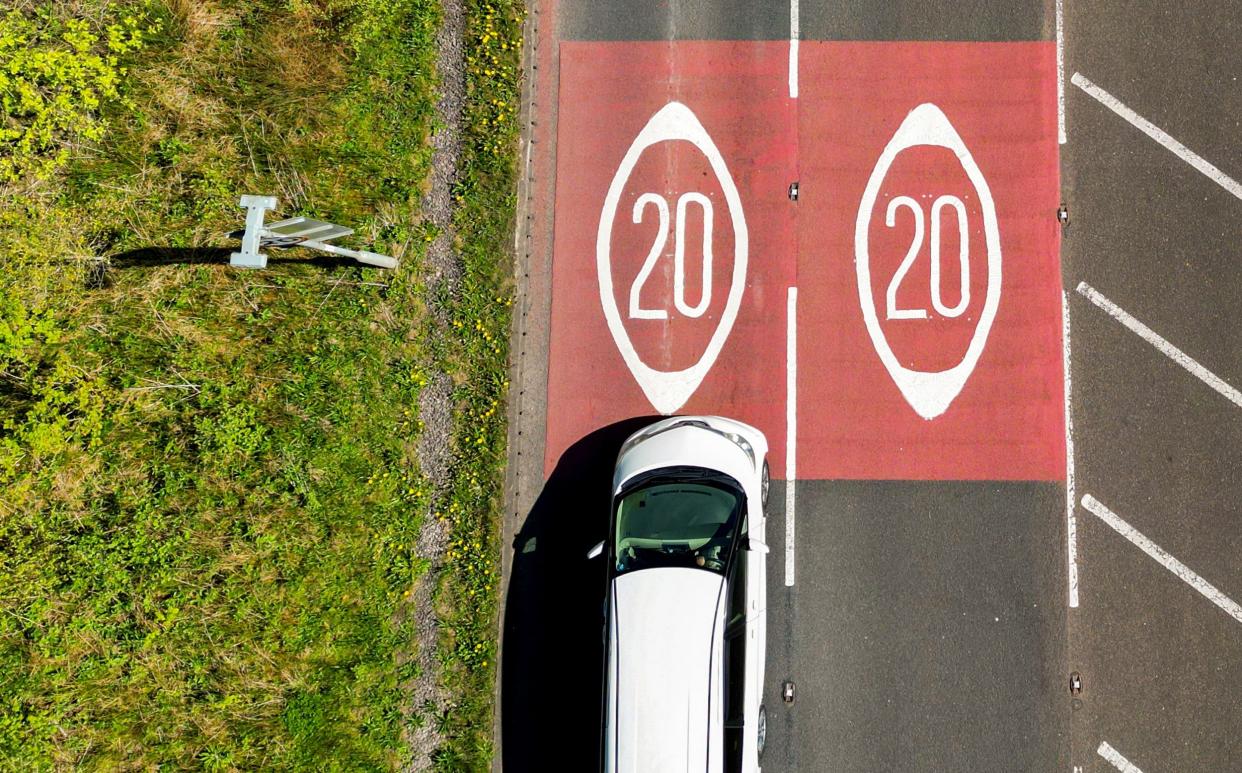Londoners spend an extra working day every year in jams thanks to 20mph limit, analysis shows

Sadiq Khan’s blanket 20mph speed limits across the capital have cost Londoners stuck in traffic jams an extra working day every year, new figures have suggested.
Delays on roads managed by the Greater London Authority (GLA) increased by six per cent between 2019 and 2023, analysis of Department for Transport (DfT) data by The Telegraph found.
It comes after Mr Khan, the Labour mayor of London, introduced his Vision Zero policy in 2018, which included pledges to cut the capital’s speed limits to 20mph.
This was fully achieved by 2020, Transport for London (TfL) has previously said, adding that lower speed limits mean fewer people are killed or seriously injured in traffic collisions.
On average, Londoners travelling by car or taxi faced delays of 104.5 seconds for every mile travelled in 2019.
By 2023 that had increased to 110.8 seconds per mile, according to DfT data published on Thursday.
With the average London car racking up 5,600 miles a year, over a 12-month period those seconds of delay add up to nine hours and 48 minutes.
It means Londoners now spend the equivalent of an extra working day per year stuck in traffic jams.
Meanwhile, average speeds on A-roads controlled by the GLA decreased from 14.2mph in 2019 to 13.6mph in calendar year 2023.
The authority did not respond to a request for comment.
Nationwide, Britain’s roads got worse during the financial year 2023-24 ending in March, according to the latest DfT figures.
Delays on England’s motorways and major A roads reached record levels, with journeys on the nation’s strategic road network (SRN) being delayed by an average of 10.6 seconds per mile travelled in the 12 months to the end of March.
That is the longest delay in records dating back to 2015, although the DfT said the delay figures are averaged out over time and so do not reflect the impact of congestion.
‘Impact of roadworks’
Rod Dennis, senior policy officer for the RAC, said: “It’s concerning to see annual delays on motorways and major A-roads appear to have hit an all-time high, but this is perhaps a further sign of just how important vehicles are to people’s lives.
“There could be a number of reasons for the increase, including higher traffic volumes – which are well on their way to returning to pre-Covid levels – and the impact of roadworks, including the rolling programme of adding new refuge areas to smart motorways.”
A spokesman for National Highways, which is responsible for the SRN, said: “We know delays are frustrating, but a number of factors contribute to slower-moving traffic.
“The make-up of vehicles on the road is changing, with more HGVs and larger vehicles together with less cars. This brings average speeds down.
“Our programme of improvements will result in long-term benefits for motorists – shorter and more reliable journeys as well as safer and smoother roads.”


